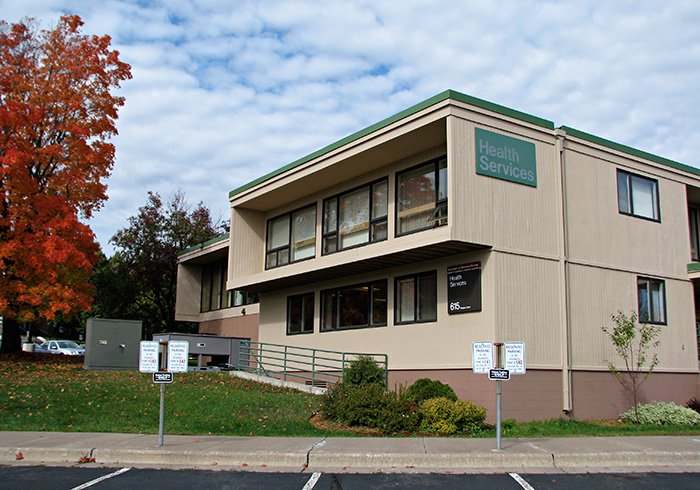Health Services at UMD
Photo from UMD’s Health Services page.
It’s Monday morning. You wake up the same way you always do with hard contacts still in your eyes from the night before and a pounding headache that feels like it’s breaking through your temples. It's 8 a.m., and it’s time for class. Walking through the UMD campus you see a lot of the same things—posters, signs, people and professors. The only thing that changes is the different assignments you need to complete every night.
There seems to be no light at the end of the tunnel. After surviving a global pandemic, everything seems to be falling through the cracks. Even though anxiety and depression seem so isolating, a significant amount of people are going through it.
According to CEUfast.com, Duluth is the ninth-most depressed city in the country. That means 25.8% of Duluth’s population is depressed. Duluth is also known for being a college town. The city of Duluth’s website says that 38% of the population is under the age of 25. Theoretically, a quarter of students at UMD are likely facing some sort of mental health issue.
Many college-aged students struggle to get through their day. The American College Health Association’s (ACHA) Spring 2022 National College Health Assessment surveyed over 54,000 undergraduate students. Results showed that about 77% were experiencing moderate to serious psychological distress.
Like other colleges, UMD has health resources that are here to help with medical and mental health issues. One of the main issues with this resource is the location of its building.
Health services are separately housed in between the Lake Superior Hall and the Heaney Hall dorms, but many students often overlook the building. It is also not very convenient for off-campus students. The purpose of placing this building here was to allow for more foot traffic, but that is not the case.
A counselor for Health Services, Julie Kim said, “Students bring concerns that are very different, stress, academics, friendships, anxiety. I see all types of students, freshmen, seniors, pharmacy students, graduate students. Compared to the student population and counselors, I think it’s used heavily.”
The best way to make an appointment is to call their office at 218-726-8155.
The Health Services offers 12 free counseling sessions per academic year, but Kim said:
“On average students use about five out of the 12. The reason behind not utilizing this could vary. Most people find out about this resource by word of mouth and many students don’t know it’s free,”
There are eight counselors for over 11,000 students that go to UMD. Finding a counselor that fits your needs is not an easy journey, either. You often go through various professionals until you find one that makes you comfortable. Telling your story and symptoms many times over can be unencouraging.
There are a few groups on campus that are also here to help. The Health services have student-led grief groups and support systems that meet weekly. For example, There’s a group called “Get It Done.” It’s for students who struggle to meet deadlines due to mental health.
The associate dean of CAHSS, Dr. Mitra Emad, is aware of the mental health issue on campus. She goes into classes and performs resilient practices in hopes of helping people cope with mental health issues.
Emad works with student success and retention. She mentioned the phrase “DFW”, which stands for D’s, F’s and Withdrawals. She studies the reasoning behind poor academic performance as an entry to her job. As an anthropologist and yoga therapist, her questions are about what people can do right now when they encounter these heightened emotions.
She also stresses the importance of awareness practice. This is a way to fully engage and be present by letting tensions and concerns run free from your body. It’s as simple as going through your five senses and naming something you can touch, see, hear, smell and taste. You can even do hand yoga right now by pressing your pinky and ring finger against your thumb pad for a few seconds.
Something so simple as these exercises allows your brain to slow down and experience the world around you.
Emad said, “this is an everyone problem”— meaning that we all have to help each other as a support system. Some of that help comes from ending the negative stigma by talking about your mental health journey.
College is a brain-altering, stressful, exciting and confusing experience. If you are experiencing strong emotions mentally, you are not the only one. Though this disease is isolating, there are healthy ways to cope with the students and staff on campus.

